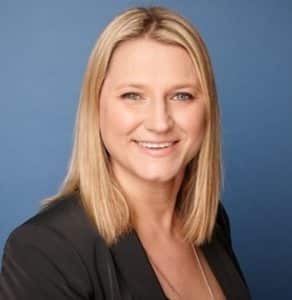The UK’s gender pay gap has extended to 14.5 per cent, dropping it from 13th to 17th in PwC’s Women In Work Index, the largest annual fall of rankings experienced by any OECD country this year.
The report, on International Women’s Day, has shown that women are facing a ‘pay penalty’, earning only 90p compared to an equally qualified man earning £1.
At the current rate of progress, it will take 43 years to close this gap, which overall worsens the economy and prolongs the mission to reach gender equality in tech.
If this pay penalty, did not exist the total increase in earnings could be up to £55bn every year and it could also encourage women to rejoin the workforce, with a 5 per cent increase in the total number of women in employment could boost UK GDP by up to £125bn every year.
Other research from EY shows that in the financial services industry, the gender split among board directors is currently 39 per cent female, 61 per cent male which suggests that, while progress for women in the FinTech sector is being made, a lot more has to be done to achieve gender parity.
Anna Porra, Head of Market Development and Planning at Soldo, agreed “Inclusivity fosters innovation and creativity which has been at the centre of the positive disruption we’ve seen in financial services over the past decade,” she said.
“Prioritising diversity not only advances individual careers but also bolsters overall economic growth by tapping into the full spectrum of talent. With the economic landscape looking gloomy, fintechs are doing all they can to stand out from the crowd.
“The ones that will, are investing both time and money in women – creating diverse workplaces that truly meet customer needs.”

Porra: Inclusivity fosters innovation
She recalls that, “research has continually proven that diversity benefits businesses, and in the competitive landscape of fintech, capturing talent and embracing a wide set of skills is not just a matter of social justice but a strategy for sustained success”.
Sarah Spoja, CFO at Tipalti, echoed this sentiment and believes that creating a diverse workplace is also vital to attract and retain young talent.
“Women made up just 16% of CFOs last year. While this figure has almost doubled over the past ten years, the percentages of women at the top remain too low,” she said.
”To combat the death of opportunities for female finance talent and inspire the next generation of leaders, we must create a more dynamic environment that embraces modernisation through technology to make the career more attractive to young talent, and continue to mentor our emerging talent through programs that showcase opportunities for their careers to grow across finance and accounting.
“The finance office itself has evolved significantly in recent years. Traditionally, more junior roles were focused on compliance and control – in which graduates were led by a conventional ‘numbers CFO’.

Spoja: dynamic environment needed
“However, with the ongoing digital transformation of businesses and their increasing dependence on technology to shape strategic decisions, the dynamics of finance roles are shifting. Automation has played a pivotal role in this transformation by streamlining manual and mundane tasks, thereby freeing up time for young talent to engage in more strategic and value-added activities.”
As for how far the industry has come in terms of gender equality in the financial services sector. Emma Steeley, CEO at Aro (pictured top) said that as recently as the 1980s, it was “commonplace” for lenders to demand the signature or consent of a husband or male relative when a woman, married or unmarried, applied for credit. “This practice was rooted in historical gender biases and societal norms that considered women as financially irresponsible and dependent on men,” she said.
And while a lot has been achieved in the credit industry, she stresses the importance of data in making credit more accessible for women. “Data reigns supreme. But many credit scoring systems continue to rely heavily on traditional bureau data, which may disadvantage individuals, especially women,” she said.
“This discrepancy may stem from the persisting gender pay gap meaning women have less financial stability and consequently, fewer opportunities to secure the credit they need.”
She believes there is an urgent need for a renewed focus on open banking and a phasing out of standardised bureau data to foster a more inclusive and fair credit system, that doesn’t disadvantage women who lack extensive credit histories.
She said: “Addressing these issues requires a concerted effort by governments, financial institutions, and a revamp of how we assess affordability with a system that promotes inclusive lending practices, eliminates gender bias, and considers open banking for assessing creditworthiness and affordability. Outdated models, which have hindered countless creditworthy individuals, must give way to a more comprehensive, data-driven approach.”
Too many women still believe they don’t deserve their place in the financial services industry and are less likely to succeed than men, highlighting a need to break away from societal pressures and stereotypes over ambition and success.
“We have to stop conforming to society’s expectations of ambition,” said Nicole Olbe, Managing Director UK&I at Adyen. “While I have been lucky enough to work alongside some fantastic allies, reflecting on my earlier career there were some difficult days in the office.
“A case of a ‘fake it until you make it’ mentality, turning up to meetings in a power suit and bringing more of what I felt was a ‘male energy’. It took time to embrace what I truly believe is ambition and therefore success.”

Olbe: Look for allies in your business
There is, however, data that demonstrates women are starting to shake-off stereotypes and be ambitious Adyen’s own research, suggests that 37 per cent of respondents said they felt happiness when proclaiming personal ambition.
Nicole said companies should consider more than workplace obligations when it comes to ambition; citing her own experience of becoming a mother and how it made her re-evaluate her priorities.
“I’m a mother first, and while I’m also driven by a mission to deliver on innovative payment solutions, I’m acutely aware of my role in the future and being part of a world that serves a diverse population for the better,” she said.
“We’re in a period of redefining work and how it fits into all our other identifiers. You can still be ambitious while having other priorities. Look for allies in your business, and consider networking in groups such as Women in Payments who provide opportunities to share their experiences and hear from others.”
Related
Women and finance: bridging the gap
Women in finance expect lower bonuses than men





